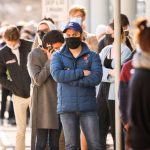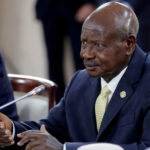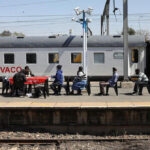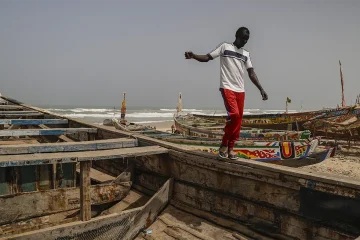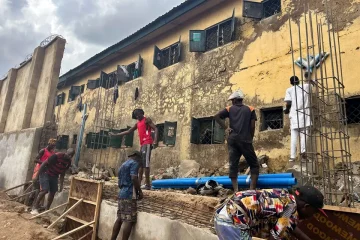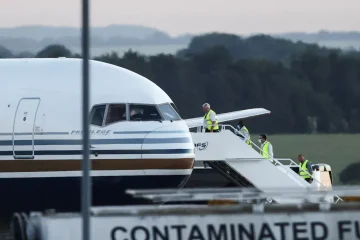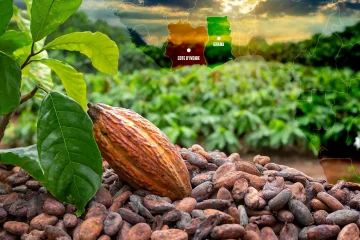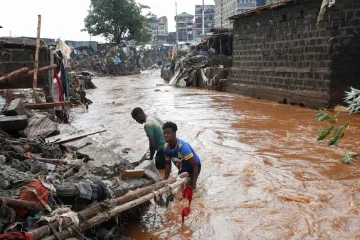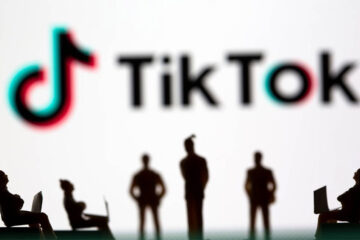AFRICA NO FILTER, VIA BIRD NEWSROOM
EACH month, Africa No Filter, a donor collaborative aimed at shifting narratives on and in Africa away from damaging stereotypes, releases its findings on social media search patterns on the continent. In June there was one unexpected item: “lingerie”.
Another month, another reminder that the economic impact of COVID-19 is still unfolding across Africa. For the near future, governments around the continue are likely to take measures like restrictions on travel and non-essential services and movement, to help curb a new wave of infections.
The “third” wave of infections is causing what researchers have called “severe socio-economic dislocations on African economies”. So it’s no wonder that the item “jobs” once again dominated Google searches across Africa. This month, employment was top of mind in Botswana, Cameroon, Gabon, Mozambique, Rwanda, Niger, Sudan, Tunisia and Zambia.
Reports point to rising unemployment due to the COVID-19 impact. In Tunisia, for example, tourism, the second biggest contributor to the GDP after agriculture, supported 400,000 jobs before COVID-19 hit. More than a year into the pandemic, the tourism industry remains only partially open. It continues to take hard knocks, turning popular destinations like Sidi Bou Said, desolate.
Even where tourism is fully open – which is the case in Botswana, Zambia, Gabon, Cameroon, Rwanda and Sudan – the number of tourists remains low. In Sudan and Niger, which is partially open, visitors have all but disappeared.
The tourism industry in Africa received 71.2 million visitors in 2019, generating 40 billion US dollars in revenue. The Foresight Africa 2021 report by Brookings Institution estimates that the number of tourists coming to Africa has fallen by 98% since early 2020.
The number won’t be going up anytime soon, either, with reports estimating that tourism in Africa will only pick up after 2023. Even then, it could take five years before the continent gets back the number of visitors it had pre-Covid.
Meanwhile, in Malawi and Madagascar, brief hopes of a revived tourism sector led to “exchange rate” becoming the most searched item in both countries after announcements that the tourism sector would open. Sadly, a surge in COVID-19 infections led to borders closing again.
“The pandemic will have far-reaching implications for productive employment, especially for low-skilled youth, in such roles as cooks, waitrons, and front office staff,” Brookings Institution said. Despite the grim outlook, however, there are plenty of reports pointing out that this is an opportunity to grow intra-African tourism by making it easier for Africans to travel the continent.
The second most searched term, price, came from Tanzania, Libya, Ghana and Ethiopia. In most cases, searches were related to smartphones and feature phones, but in Libya, it was gold, the Turkish lira and stocks, that people wanted to know more about.
“News” was the most searched word in the Central African Republic, DRC, and Angola. Breaking news also determined searches in Uganda, Mauritius, and Burkina Faso, where “prime minister”, “vaccines” and “terrorism’ led searches.
Uganda inspired hope when President Yoweri Museveni announced a new cabinet that featured women in critical positions, including Robinah Nabbanja as the first woman to become prime minister. As a result, “prime minister of Uganda” led Google searches in the East African country.
In Mauritius, news that the government was ready to start handing out second doses of COVID-19 vaccine drove “vaccination schedule” to the top of Google searches. The island, which has a population of 1.1 million people, has already vaccinated 38.1% of its population since January 2021. COVID-19 also led searches in Liberia, – in this case, the term searched for was “covid-19 testing.”
The term “terrorism attack” was the most searched item in Burkina Faso. This followed a terrorist attack that left 160 civilians dead. It’s the deadliest terrorist attack in the country since 2015.
Google Trends in June also showed that sport remains a popular feature of life across the continent, even when there is no big sporting tournament. In Kenya, the annual Safari Rally led Google searches. Other sport-related searches were about checking out the competition. The “Zambia national football team” led Google searches in Senegal. In Algeria, it was ”Tunisia national football team”, “Tunisia” in Mali, “Togo” in Guinea, “Benin” in Sierra Leone and “Oman” in Somalia. Soccer matches inspired all the searches. The South African national cricket team started a tour of the West Indies in June, turning “West Indies cricket” into the leading Google Trend in the country.
These searches are consistent with the localised nature of Google searches in June, which led to searches in different countries reflecting local news and events. For example, “26th June” led searches in Somaliland because that is when the government declared independence from being a British territory.
Even though Twitter featured in top searches in eSwatini and Nigeria, it was specific to events in each country. President Buhari announced an indefinite ban of Twitter in Nigeria in the beginning of June, which turned “Twitter ban” into the most searched keyword in the country. In eSwatini, “Twitter” led searches after the government reacted to pro-democracy protests by shutting down the internet.
We were not surprised to see gambling come up in searches, thanks to the rapid growth of online betting and gambling in Africa. “Gambling”, “Congo bet”, and “Lotto” led searches in the Gambia, Congo and Benin.
However, we did not expect anything to do with lingerie to lead searches in Egypt, and yet “Victoria’s Secret ” was the most searched item on Google in the country. It makes sense – the brand announced that its products would be available in the North African country.
Could Africa be “the secret” to the brand’s survival as it grapples with store closures in the North American market?

